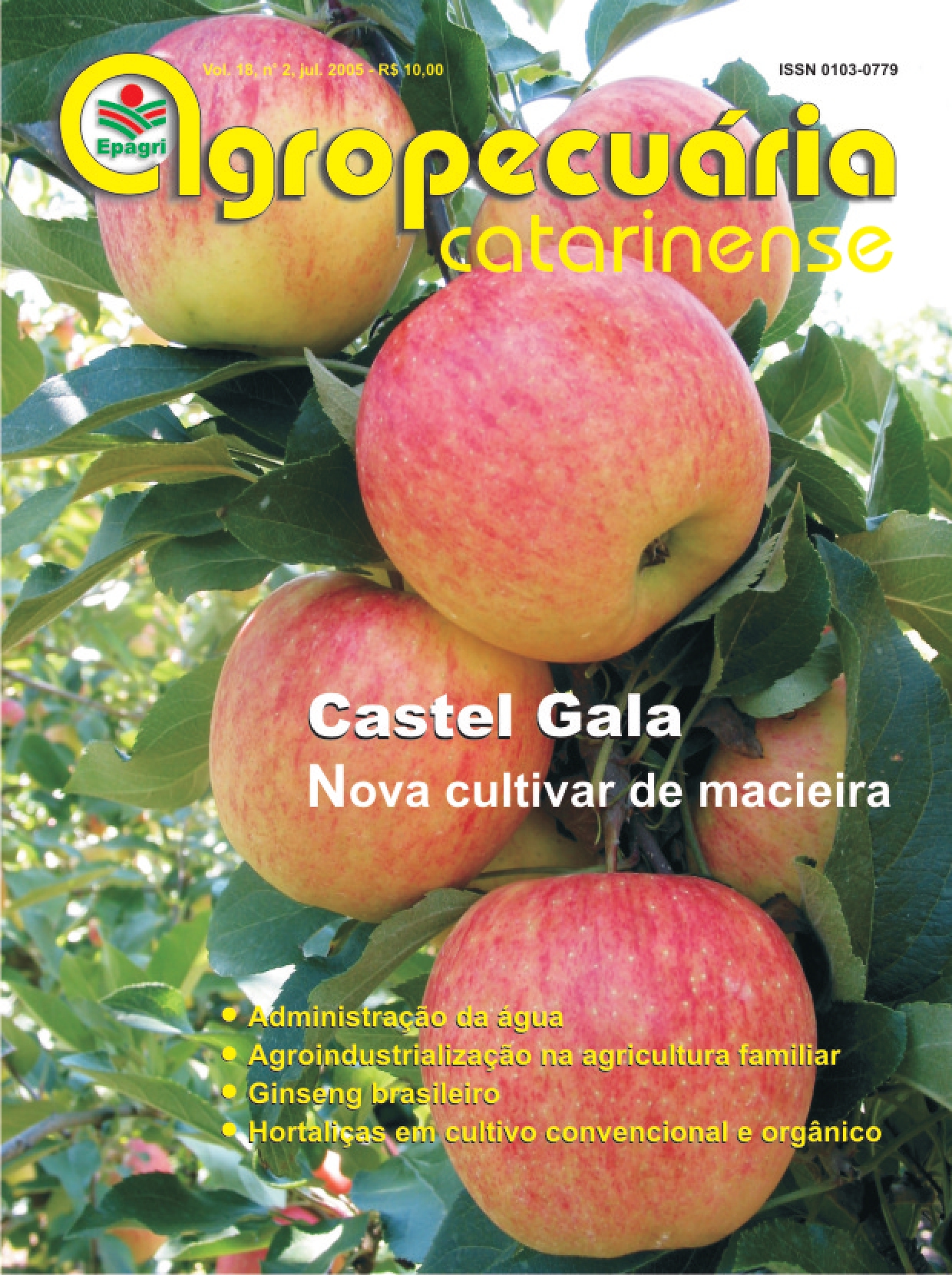‘Castel Gala’ – a ‘Gala’ apple mutation for low chilling and early ripening
Keywords:
Malus domestica, climatic adaptation, precocityAbstract
The Brazilian apple production in 2004 was around 980.000t. More than 70% of this amount was
harvested under warm climatic conditions, where chilling hours is insufficient to ensure good yield and good fruit quality. Most of the apple production comes from cultivars with high chilling requirement, a condition not satisfied in regions with altitudes lower than 1.200m in Southern Brazil. The lack of chilling has direct negative effects on
bud breaking, flowering, and fruit quality. Castel Gala is a low chilling apple cultivar with very early fruit ripening. This new apple cultivar have a blooming time from 20 to 25 days earlier than cultivar Imperial Gala, which is currently the most planted apple cultivar in Southern Brazil. ‘Castel Gala’ apples have similar skin color, flavor and texture of those of ‘Gala’. Although their fruits ripe much earlier than those of ‘Gala’, fruits of both cultivars have similar storage and shelf-life capacity. These characteristics, in addition to the low chilling requirement, make
‘Castel Gala’ a good option for fruit growers to produce apples of good fruit quality and high yield at warmer winter climate than that recommended for ‘Gala’ and ‘Fuji’.
Metrics
Downloads
Published
How to Cite
Issue
Section
License
Copyright (c) 2005 Agropecuaria catarinense

This work is licensed under a Creative Commons Attribution 4.0 International License.




